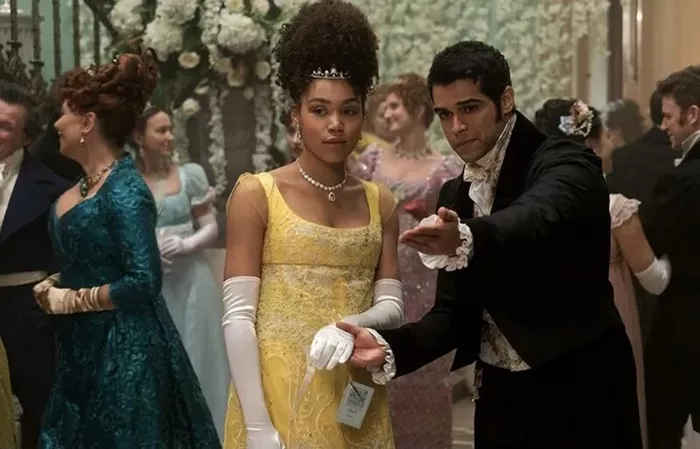Ruby Barker, the rising star known for her role in the hit period drama Bridgerton, has come forward to share the harrowing details of her filming experience, shedding light on the challenges she faced during the production of the acclaimed Netflix series. In a candid revelation that has sent shockwaves through the entertainment industry, Barker has called out Netflix and Shondaland for their purported lack of support and assistance during her tumultuous moments, highlighting the profound impact of her struggles on both her mental well-being and her overall experience as part of the show’s cast.
Amidst the glitz and glamour associated with the success of Bridgerton, Ruby Barker has bravely opened up about the grueling realities she encountered behind the scenes, particularly during the filming of the show’s inaugural season. Barker’s revelations have underscored the formidable pressures and challenges faced by actors in the demanding world of television production, shedding light on the complex and often overlooked aspects of the entertainment industry that can significantly impact the mental and emotional health of those involved.
According to Barker, her experience during the filming of Bridgerton was marred by a series of psychological challenges, culminating in what she describes as “psychotic breaks” that necessitated hospitalization. Despite the gravity of her situation, Barker asserts that her hospital visit was deliberately concealed by the production team, ostensibly to safeguard the show’s release and promotional campaign. The perceived lack of transparency and support during her time of distress left Barker feeling isolated and vulnerable, with minimal recourse for addressing the underlying issues that contributed to her psychological turmoil.
Furthermore, Barker has raised concerns about the absence of adequate aftercare and support from both Netflix and Shondaland, underscoring the detrimental impact of the industry’s relentless focus on maintaining appearances and promoting a facade of seamless professionalism. The pressure to uphold a veneer of stability and normalcy, despite grappling with internal struggles, exacerbated Barker’s sense of alienation and compounded the challenges she faced in reconciling her personal well-being with the demands of her professional obligations.
In response to Barker’s revelations, representatives from Netflix and Shondaland have yet to provide a comprehensive statement addressing the allegations of inadequate support and lack of assistance during the production of Bridgerton. The absence of a formal response from the production team has prompted fervent discussions within the entertainment community, with industry insiders and advocacy groups emphasizing the need for comprehensive mental health resources and support systems to safeguard the well-being of actors and individuals involved in the rigorous and often emotionally taxing world of television and film production.
Barker’s decision to speak out about her experiences serves as a poignant reminder of the inherent challenges and vulnerabilities faced by actors and artists within the entertainment industry, highlighting the urgent need for systemic reforms and comprehensive support mechanisms to prioritize the mental and emotional well-being of all individuals involved in the creative process. As the conversation surrounding mental health awareness and advocacy gains momentum within the entertainment landscape, Barker’s candid testimony stands as a powerful call to action, urging industry leaders and stakeholders to prioritize the holistic welfare of their talent and foster a culture of empathy, understanding, and support within the realm of television and film production.

